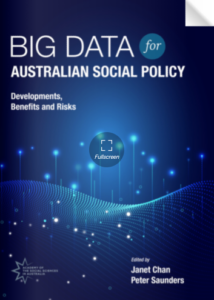Dr Judy Rose is an expert mixed methodologist with an extensive teaching background. Judy’s current position is a Griffith University Research Methods Advisor, where she teaches in the Statistical Training program, providing skills and methods for assembling and validating surveys as well as conducting interviews in the context of mixed methods.
 Judy teaches in the Judy is the lead investigator on a Teaching and Development grant titled, ‘Critical Inquiry of Method: A Pedagogical Intervention‘.
Judy teaches in the Judy is the lead investigator on a Teaching and Development grant titled, ‘Critical Inquiry of Method: A Pedagogical Intervention‘.
Before coming into research, Judy was a primary school teacher in Australia and the US, where she first became interested in English Second Language pedagogy after teaching a Spanish-English bilingual class in a disadvantaged community.
After completing a Master of Arts in Applied Linguistics, she became a specialist ESL teacher/ team leader in Logan primary schools, working with migrant and refugee children. Her interest in social justice came from working with vulnerable students and their families, further ignited throughout her PhD research examining gender inequality in time spent on the competing demands of career/ family: proving foundational for much of her research.
Judy says:
“Education as an important pathway to gender equality, voice and empowerment for marginalized individuals, groups and communities.”
Judy’s current research explores social justice themes related to gender inequality, child wellbeing, and domestic and family violence (DFV). Her recent publications implement innovative mixed (qual + quant) analysis of interview data to examine the effect of big data linkage on vulnerable children and communities. In contrast, her recent research publication in Health Sociology Review draws from post humanist and actor-network theory to expose the often-invisible practices of coercive control from the perspective of a victim/survivor.
Judy says:
“One woman per week in Australia is killed due to domestic violence, which is a devastating statistic. It’s important to keep striving for gender equality via programs such as the Respectful Relationships Education Program introduced in 2016, which aims to equip students with the skills to develop respectful and equitable relationships that are free of violence. This kind of education needs to take place when children are young and continue all the way throughout their life-long learning journey”
She further notes:
“One of the areas I’m really interested in at the moment is finding out what primary school communities in SEQ, where students experience high rates of family violence, need in terms of support. Although schools are in a unique position to respond to DFV, the mandatory reporting regime in place is a blunt instrument which fails to address the nuanced complexity of the issue. With the support of GIER, I aim to foster research collaborations and seek funding to be able conduct research this area in 2023″
Read more about Judy’s fascinating work on her Griffith experts page and in two recent publications below.




